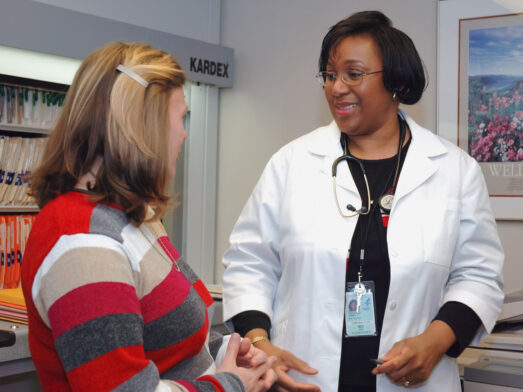THE PCP – Our Body’s Best Friend
If you or someone you care about doesn’t have a doctor, (Primary Care Physician - PCP), now is a good time to change that. A PCP can provide preventive care, teach healthy lifestyle choices, identify and treat common medical conditions and make referrals to specialists, like an oncologist, when needed. My PCP was my guardian angel.
It started with routine bloodwork. My PCP didn’t like what he saw from the first bloodwork lab results he ordered, so he asked me to repeat them. The repeat lab results showed more of what concerned him - an elevation of my liver function and pancreatic enzymes. He called me on a Sunday morning and told me to go to the ER immediately for scans. (What an amazing way for my PCP, Daniel Peterson to show up for his patient! I will be forever grateful.) Off we went to the emergency room for more bloodwork, imaging, testing and probing. All resulting in possibilities, but no diagnosis for four days. And then, the three words that changed everything, you have cancer.
There are many reasons to establish and maintain a relationship with a primary care physician. Here are four to consider...
Get Healthy, Stay Healthy
A primary care physician helps establish a baseline for health and monitors the patient’s health over time. They provide regular check-ups, screenings, and vaccinations, helping to detect and prevent potential health issues before they become more serious. This proactive approach can lead to better long-term health outcomes.
Prevent Problems, Treat Problems
A primary care physician is often the first healthcare professional one will see you when experiencing health issues. They are trained to recognize symptoms and signs of various conditions and can make referrals to specialists or order appropriate tests for an accurate diagnosis.
A “Go To” Resource In Case of Emergency
In case of a medical emergency, a primary care physician can provide information to emergency medical teams about a patient’s health conditions, medications, and allergies. In critical situations, making the right choices and decisions is essential and important.
Urgent Care and Emergency Room Visits Are Not Sustainable
Establishing a relationship with a primary care physician will help avoid unnecessary visits to urgent care or emergency rooms for non-emergency issues. This can result in cost savings over time.
Overall, a primary care physician serves as a patient’s main point of contact for healthcare needs, offering preventive care, early intervention, comprehensive medical knowledge, and guidance throughout the health journey. Building and establishing strong partnership with a PCP can contribute to a healthier and happier life. The PCP life-line is essential.
Written By
Eric Roberts







